A round-by-round look back at Yannick Noah's championship win at Roland Garros in 1983. A tournament marked by his humour, his serve-volley game and a big hug for his dad.
Yannick Noah's 1983 triumph: match by match
40 years after his title at Roland Garros, we take a look at the French champion's greatest victory
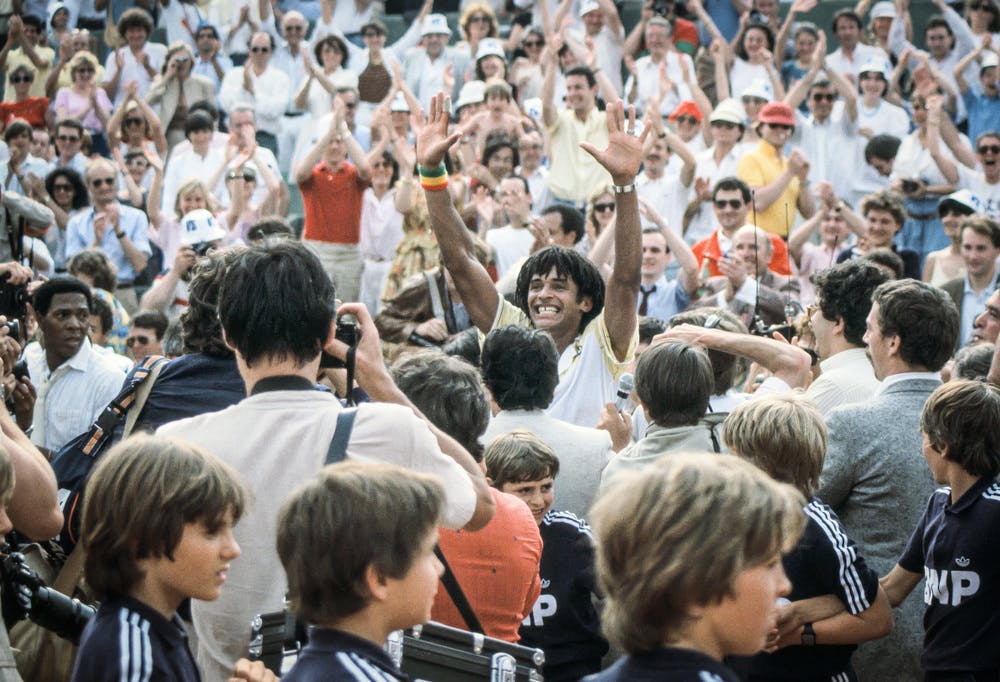
First round: beat Anders Jarryd 6-1, 6-0, 6-2
“I was a bit worried when I was down 1-0 after the first game.”
In the post-match press conference, the Frenchman treated the audience, as he often did, to a touch of humour. Or did he? “I prefer winning these matches swiftly and go practise.”
It was Noah’s first official match on Court No 1. It took him only 1h 20m to beat Swedish player Anders Jarryd – who made it to the third round in 1982 despite not being a clay-court fan like most of his compatriots.
TF1 journalist Jean Raynal put even more pressure on Noah, “Yannick is on fire. He seems to have what it takes to be the first French player since Marcel Bernard to win the French Open.”
But there still was a long way to go.
Second round: beat Victor Pecci 6-4, 6-3, 6-3
Noah would have to overcome several other obstacles, including Victor Pecci, whom he faced in the second round. Pecci had beaten him in the 1981 Roland-Garros quarter-final; he had made a splash with his diamond earring and his tweeners when he made it to the 1979 final.
But Noah turned this expected showdown into a damp squib. By 1983, 'Peccimania' had died down; Pecci was still wearing an earring, but Noah had replaced him as the king of acrobatics. Despite the autumn-like chill, Noah was on fire.
Third round: beat Pat Dupre 7-5, 7-6, 6-2
In the 1980s, players would sometimes play two matches on consecutive days, and Noah was back on Centre Court the day after his victory over Pecci. Maybe this was why he did not start well. He was down 5-1 after 20 minutes against a player who was like many other Americans at the time – all about the attack and not quite comfortable on clay.
Pat Dupre even had a set point at 1-5 but the Frenchman brushed it aside with a furious volley. L’Équipe journalist Denis Lalanne wrote that “the wheel of fortune turned” after this point. Noah won nine games straight and led 7-5, 3-0.
Dupre’s comeback in the second set was just a detail. Noah went through once again without dropping a set.
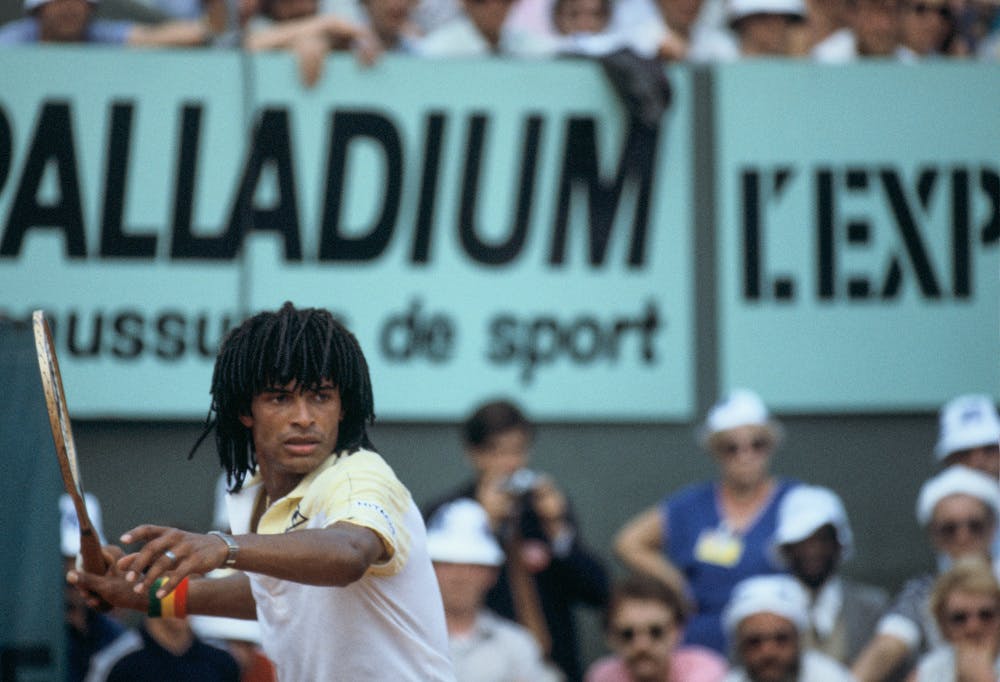
Fourth round: beat John Alexander 6-2, 7-6, 6-1
All the favourites were still there: Mats Wilander, Gullermo Vilas, Jimmy Connors, and Ivan Lendl, whom Noah could face if he beat John Alexander in the round of 16.
At nearly 32, the Australian player seemed worn out after a 15-year pro career and two intense matches against Hans Simonsson and Mel Purcell earlier in the week. However, this formidable athlete – who was also accomplished at golf, cricket and surfing – had enough in the tank to lead 5-2, 30-0 in the second set. He eventually lost in three sets but with all credit. As for Noah, he got himself out of a sticky situation once again.
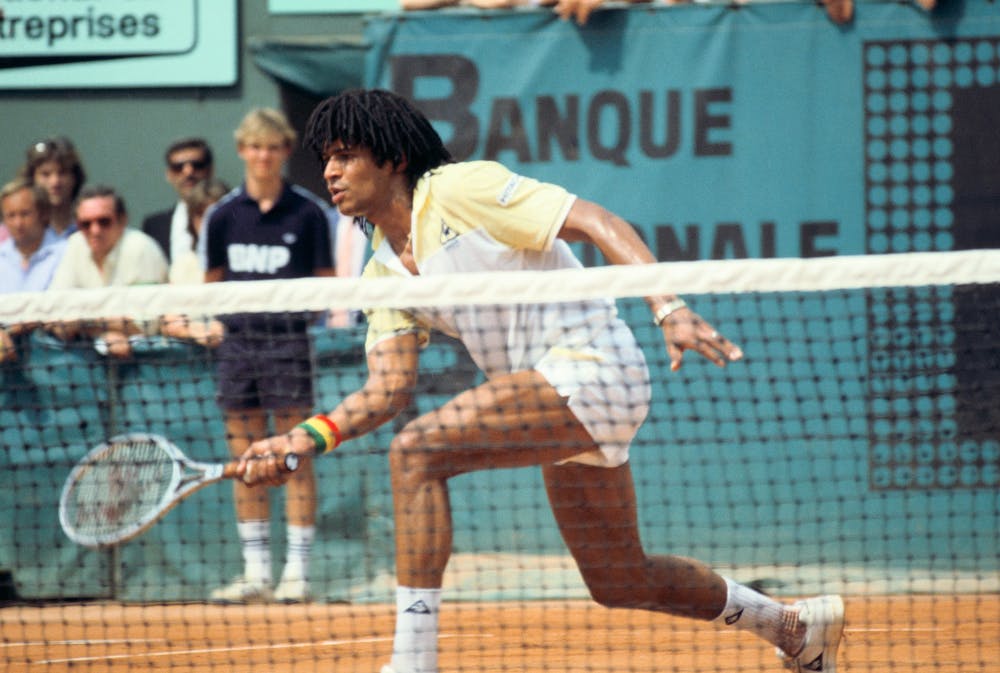
Quarter final: beat Ivan Lendl 7-6, 6-2, 5-7, 6-0
And Noah was back against his arch enemy. This highly anticipated match had all the makings of a final. A year before, on the same court, the two had faced each other in the Davis Cup, one of the best tennis matches played in 1982 and Noah had won in five sets.
This quarter-final was not as beautiful, but it was no less intense. Noah had a 7-6, 6-2, 5-3 lead but missed two match points allowing Lendl back in the match for 2-1. It was past 8pm and TF1, for once, changed their schedule. Tennis was given priority over football and viewers missed the first half of the France v Belgium match, which Michel Denisot and Didier Roustan were due to commentate on. It was for the best; instead of watching the likes of Patrick Battiston and Manuel Amoros draw with Belgium, people watched a fired-up Noah.
Having lost that third set, the Frenchman played one of the best sets of his career – 6-0. It was almost 9pm when Noah triumphed in front of the Centre Court crowd, which gave him one of the best ovations of his career. He would play his first Grand Slam semi-final.
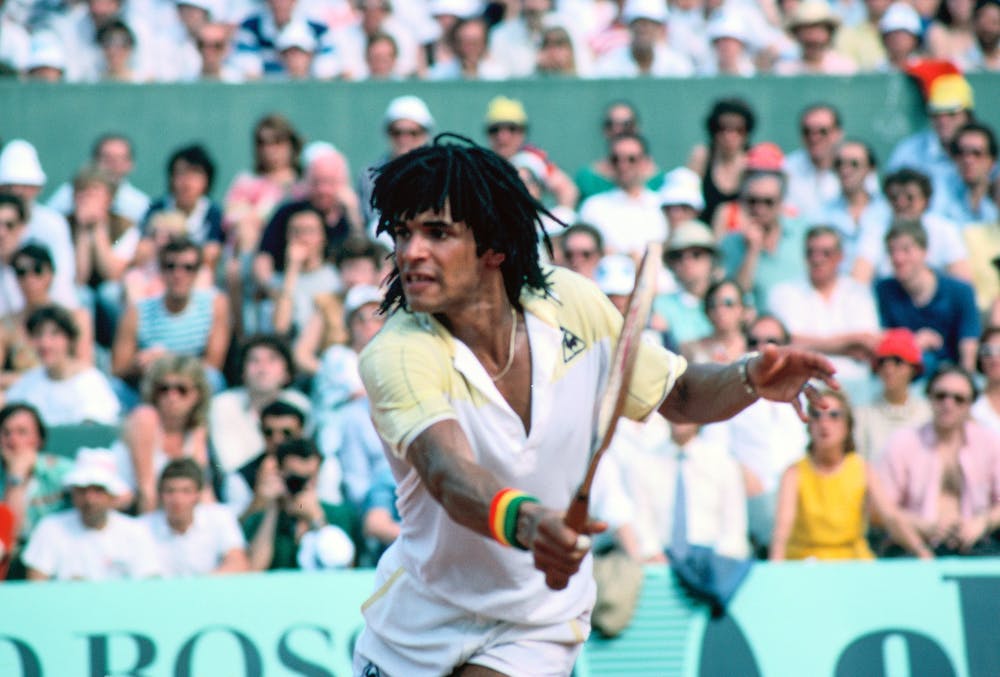
Semi-final: beat Christopher Roger Vasselin 6-3, 6-0, 6-0
Let’s be honest: there was no contest in this match. Even the winner would have preferred a more competitive battle. “It feels weird. I wanted to win, but I didn’t want to spoil it for him,” Noah said in his post-match press conference.
At 4-0 up in the third set, Noah even cheered his opponent. “His performance was getting even poorer. I could see he was tired. So, I had this strange moment when I said: ‘Go on, Chris!’ halfway through a rally.” Condescending? No, he didn't say it out loud. Hardly anyone heard him.
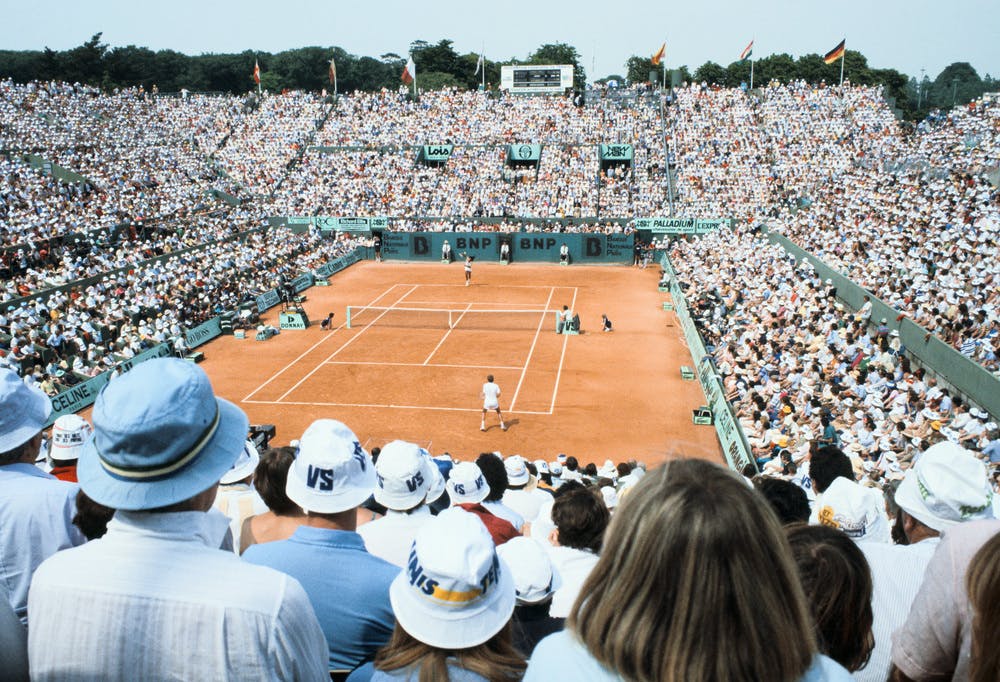
Final: beat Mats Wilander 6-2, 7-5, 7-6
All French tennis fans remember where they were on 5 June 1983, just like they remember the match, or the L’Équipe front page headline – ‘50 millions Noahs’. The stands were packed, the sky was blue. Mats Wilander’s last forehand return landed out.
It was Yannick’s “childhood dream”. He went down on his knees; his dad Zacharie jumped out of the player's box and came on to the court to give his son a hug. There were tears, joy, and exhilaration. People ran onto the court, swamping the security staff.
Noah begged for people to give him air. “Take it easy! I want to drink and breathe!” But what do we recall about what happened before these scenes of jubilation? Not much, to be honest.
This match was no masterpiece. Still, Noah had to fight tooth and nail to win a tough second set. Then, he almost lost it in the third as he was about to make his dream come true. Every time they switched ends, he would sip his soft drink, have a few candies, and massage his own calves. Stress was making him hungry.
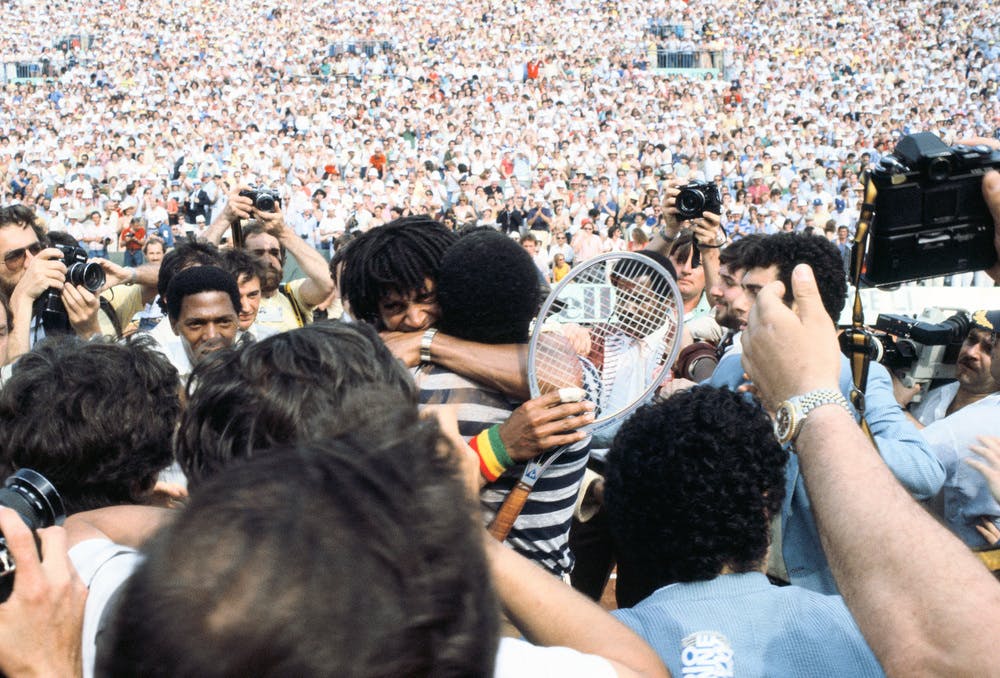
Noah served for the match at 6-5 but missed his serve completely. He also lost the first tie-break point to a super lob from Wilander.
In the TF1 commentator booth, Hervé Duthu – whom pundit Jean-Paul Loth had left alone to watch the match from a box – could not have been more nervous. He could barely announce the score.
It was not about playing well anymore for Noah. He just had to win the tiebreak. To that end, he cut every rally short and approached the net on every point.
At 6-2 to Noah, Wilander once again hit a winning lob. But at 6-3 it was all over.
It was 5.35pm on 5 June 1983, and history was made for French tennis. For the first time, French people watched a French player win Roland-Garros live on TV. It had a huge impact; from 1983 to 1985, about 4,000 clubs were founded in France while the one-million player milestone was reached for the first time.
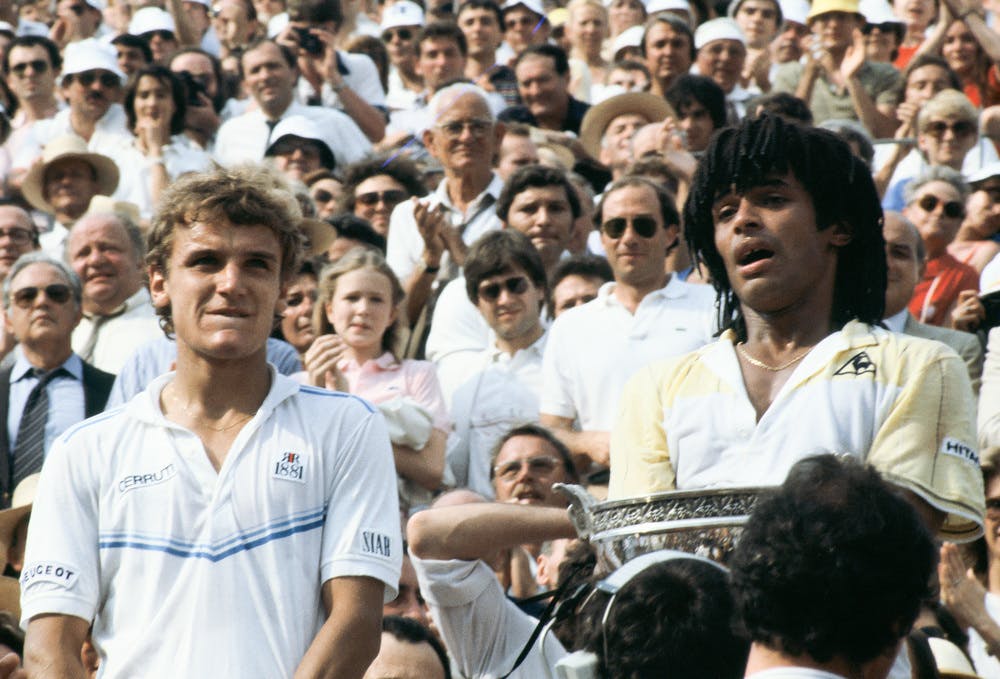
 ROLAND-GARROS
18 May - 7 June 2026
ROLAND-GARROS
18 May - 7 June 2026

